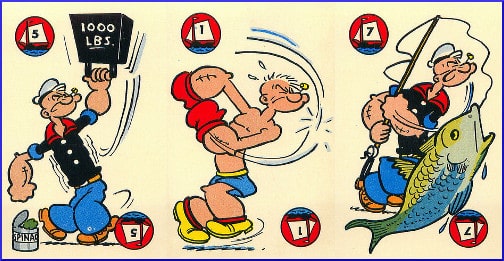Childhood Obesity News has often offered many suggestions for parents. There is always a certain amount of reluctance involved in doing that, because most parents do the best they can. Telling them about their mistakes feels unkind, and no one wants to cause pain. The temptation is always to frame the ideas in the most positive way, to avoid making parents feel inadequate or guilty. On the other hand, when parents care enough to read articles and posts about childhood obesity, soft-pedaling the truth does them no favors.
Kristin Kirkpatrick, a Wellness Manager for the Cleveland Clinic Wellness Institute, steered a straightforward course by titling a Huffington Post piece “8 Things About You That Increase Your Child’s Risk for Obesity and Unhealthy Eating Habits.” As always, we hope to induce our audience to read and appreciate the entire source article by, like a movie trailer, touching on the high points.
Parents Should Look in the Mirror First
“You’ve got a weight problem” is the first proposition that Kirkpatrick asks parents to consider. Sure, genetic heritage is involved up to a certain point—but a parent who is heavier than she or he genetically needs to be is setting a bad example. If one parent is overweight or obese, a child is 25 to 50 percent more likely to become so. If both parents are overweight or obese, the poor kid’s chance of following in those footsteps goes up to 75 percent.
“You’re a couch potato” is another accusation the author flings—and why not? It’s a case of, “If the shoe fits, wear it.” Non-couch potato parents will know it’s not true, and the dart will bounce harmlessly off their armor of active engagement. But a habitual slacker might read those words and, after a momentary pang of reluctant resistance, hear the ring of truth that they carry. Such a parent might resolve to do better, and 30 years from now, there might be one less obese person applying for bariatric surgery.
Parents Should Set a Good Example
“Modeling” is the name of the game, otherwise known as setting a good example. Every baby is born with the prime directive of “monkey see, monkey do.” Every moment of every day, parents are teaching their children how to be human. When a child is very small, parents pretty much represent the entire known universe, so they are the entire faculty of the school of life. Another old saying is, “imitation is the sincerest form of flattery,” and a brand new human wants nothing more than to be just like its mommy and daddy. For a very young person, that is the measure of success and happiness.
Babies absorb lessons that will serve them throughout life. “If shampoo gets in my eyes, it hurts”— once learned, never forgotten. “A person is supposed to sit down all day and drink stuff out of bottles and put things in their mouth and stare at a bright screen where pictures move around”—once learned, never forgotten.
A parent is in the business of programming an intricate computer, and an extremely large part of that programming is done unintentionally. Unfortunately, kids don’t just learn what we specifically want them to learn. They don’t see only what we intend for them to see, and they don’t remember exclusively the things we want them to remember.
Parents Should Seize Teachable Moments
Even though spinach tasted weird and contained unpleasantly of gritty sand, a generation of Americans learned that spinach was what gave the cartoon character Popeye a burst of physical strength. Children are naturally curious about everything, and for the mom or dad who is prepared with certain basic facts, “teachable moments” come along fairly often. Kirkpatrick urges parents to nutritionally educate themselves, and to take the opportunity to pass along their knowledge:
Teach your kids about which foods make them strong and which foods make them weak by using words and phrases they’ll understand such as “This salad will help you grow tall,” or “This apple makes mommy’s brain super strong.”
Here is Kirkpatrick’s big takeaway:
Most importantly, if your child already has a weight problem or less-than-perfect eating habits, it’s not too late to help him or her change. The step is recognizing the problem (few parents actually do) and working together with your child to change behavior.
Your responses and feedback are welcome!
Source: “8 Things About You That Increase Your Child’s Risk for Obesity and Unhealthy Eating Habits
huffingtonpost.com, 02/23/14
Image by Mark Anderson


 FAQs and Media Requests:
FAQs and Media Requests: 











